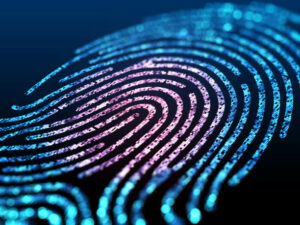Data security is of utmost importance for businesses today. In an age where both data breaches are becoming more common, and more of customers’ details are being stored on company websites, it is crucial for businesses to ensure that their customer’s personal details remain safe. What is data security? Data security is the practice of protecting electronic data from unauthorized access. Data security includes both physical and logical security measures. Physical data security measures aim to protect data from physical damage or theft, while logical data security measures aim to protect data from unauthorized access, use, or manipulation.
Table of Contents
Why is data security so important?
In today’s digital age, data is more valuable than ever before. Data breaches are becoming more common, and the amount of data that businesses collect on their customers is increasing. As a result, the importance of data security has never been greater.
Firstly, data breaches can have a devastating impact on businesses, both in terms of revenue and reputation. When both business and customers’ personal details are obtained, it can include financial information. This means that accessing both of these parties’ financial accounts are possible; significant monetary losses are not uncommon when data security fails. Even without monetary loss, a data breach can result in customers losing faith in a business to protect their details and taking their business elsewhere. In addition, data breaches can also lead to hefty fines from regulators as privacy is a human right.

Secondly, importance of data security is high because it helps to protect businesses from white collar crime. Businesses that do not have adequate data security measures in place are at a greater risk. These criminals can use the data they obtain to commit a variety of crimes. Such as identity theft, fraud, and money laundering. Such crimes are not just conducted by singular criminals, but can become a network of businesses working together to control the market. When a cartel like this forms, any data breaches against competitors allows for them to know where and how exactly to undermine said business and drive their services down. This LY Lawyers overview of cartel conduct goes in-depth of the crimes these groups of businesses can conduct, showing how important it is for businesses to protect their data.
How can businesses ensure data security?
While it can seem like a daunting task to ensure the security of all the data that enters a company, cybersecurity is actually a skill any person with some interest and technological skill can pick up. For a business with substantial resources and experts, there are plenty of steps that they can take to ensure data security. Firstly, businesses should have data security policies and procedures in place. These policies and procedures should protect data from unauthorised access, use, or disclosure. Secondly, businesses should encrypt data electronically. This will make it much more difficult for criminals to access and use data if it is stolen in a data breach.
Another way to improve data security is to educate employees about data security. Employees should be taught about the importance of data security and how they can help to protect company data. They should also be made aware of the consequences of data breaches, such as the impact on customers and the business itself. This education can also be conducted in the form of data security training. This training should cover data security best practices, such as how to create strong passwords and how to spot phishing emails.
Data security is of utmost importance for businesses today. In an age where both data breaches are becoming more common, and more of customers’ details are available to online companies, it is crucial for businesses to ensure that their customers’ personal details remain safe. By taking data security seriously, businesses can protect themselves from the devastating impact of data breaches, as well as white collar crime.
Types of Data Control and Importance of Data Security:
Access Control
One method for protecting data is to restrict access to critical systems and data, both physically and digitally. It entails making sure that all electronic devices are password-protected and that only authorized staff may enter physical locations.
Authentication
Before granting access to data, implement authentication procedures including access limitations and accurate person identification. Common examples include passwords, PINs, security tokens, swipe cards, and biometrics.
Recovery from disasters and backups
In order to securely access data in the event of a system failure, catastrophe, data corruption, or breach, you must have a plan in place. You will require a backup data copy stored on a different format, such a hard disk, local network, or cloud, in order to restore.
Data deletion
Since data erasure employs software to fully remove data from any storage device, it is more secure than regular data cleaning. Erasing data makes sure that is safe and won’t end up in the wrong hands.
Data masking
Data masking software hides information by obscuring letters and integers with proxy characters and highlights the importance of data security. It is usually not accessible even if someone unlawfully gains access to the data. Data doesn’t return to its original state until an authorized user obtains it.
Data Stability
With thorough security, you can tolerate failures or bounce back. Power outages and natural disasters should be avoided since they may compromise data security. Resilience can be a layer of your hardware and software to enable data privacy.
Encryption
A computer algorithm transforms text characters into an unintelligible format with the use of encryption keys. Only those with the proper keys and authorization may unlock and access the material. Everything, from databases and files to email exchanges, need protection to some level.

Adhar Dhaval is experienced portfolio, program and project leader with demonstrated leadership in all phases of sales and service delivery of diverse technology solutions. He is a speaker sharing advice and industry perspective on emerging best practices in project leadership, program management, leadership and strategy. He is working for the Chair Leadership Co.















